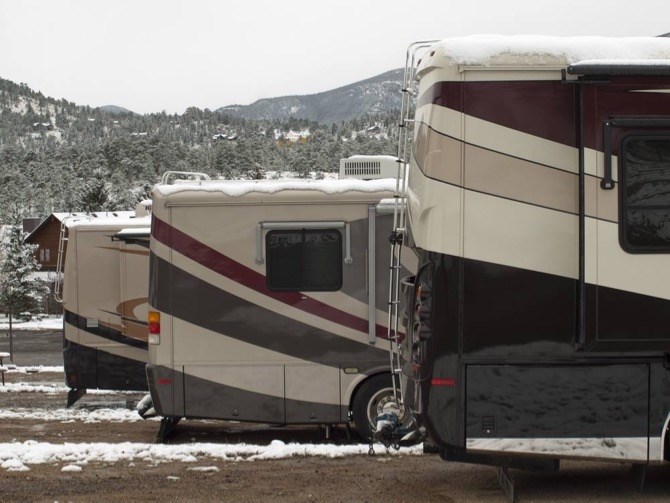
City staff are looking at the status of RV parks on agricultural land.
Image Credit: Shutterstock
January 15, 2016 - 6:00 AM
KELOWNA - Bylaw officers in Kelowna are looking closely at RV parks operating on agricultural land.
Rural planning manager Todd Cashin says the city is examining the status of 15 RV parks, large and small, trying to determine which are compliant with city bylaws and Agricultural Land Reserve regulations.
“They run the whole spectrum so we’re looking at when the RV park was established, was it grandfathered in back in the day, maybe grandfathered in during the 1990s or maybe it was not grandfathered in at all,” Cashin says. “There’s a big grey area and we certainly have concerns.”
The Agricultural Land Commission has identified tourist accommodation on agricultural land as the most abused mixed use designation in the province with unscrupulous operators renting out RV pads year round or adding extra pads in contravention of local zoning bylaws.
In Kelowna, RV operators have a limited season and cannot rent out a pad for more than 30 days at a time.
The A1T zoning allows for up to ten RV pads and governs the type of hookups allowed and where on the property the pads are located, usually at the front.
However, city council earlier this week overrode their own bylaw by a narrow margin, giving preliminary approval to a local applicant to install an RV park, doubling the number of pads and allowing them to be located at the rear of the property.
Cashin says RVs are not even his biggest concern, just one of many about how agricultural land is whittled down and hemmed in by non-farm uses that can affect operations.
“Our experience has been with the units we see in Kelowna, that farming becomes less of a priority. Let’s face it, farming can be hard. The minute the secondary use becomes more lucrative, that maybe becomes the primary income and it leads to less or no farming at all.”
Of equal concern are people who buy smaller agricultural plots and then build monster houses with outbuildings, swimming pools and landscaped gardens, sometimes taking up as much as 40 per cent of a typical 10-acre rural lot.
“You can build your house as large as you like. The only thing we can control is where on the lot the house can be built,” Cashin says.
With 70 per cent of Kelowna’s agricultural land lying fallow, Cashin says the city needs to encourage farming and discourage the misuse of farmland where ever possible, if residents are serious about protecting agriculture.
“It really is a death by a thousand small cuts,” he adds.
Cashin will be appearing before Kelowna city council next week, updating councillors on the agricultural compliance program, which targets companies improperly using agricultural land for commercial operations.
To contact the reporter for this story, email John McDonald at jmcdonald@infonews.ca or call 250-808-0143. To contact the editor, email mjones@infonews.ca or call 250-718-2724.
News from © iNFOnews, 2016